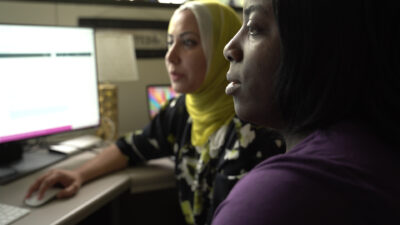World Health Organization Collaborating Center for Research Evidence for Sexual and Reproductive Health: Our Work
Early success, promise for the future
In its first decade, the Collaborating Center has focused on the development and implementation of WHO’s evidence-based guidelines, most particularly for family planning. These efforts include new revisions of the Medical Eligibility Criteria for Contraceptive Use and the Selected Practice Recommendations for Contraceptive Use as well as the first Implementation Guide for the Medical Eligibility Criteria and Selected Practice Recommendations for Contraceptive Use Guidelines and the associated Implementation Guide Toolkit published in September 2018.
While maintaining its commitment to the use of best evidence for guideline development and implementation, the Collaborating Center has more recently enhanced its focus on the generation and use of evidence to support implementation, including the exploration of novel research methods and approaches for this purpose. Further, the Collaborating Center has added a new focus on building capacity for implementation research and implementation practice. The first phase of this focus includes the development and launch of the “Implementation for the Professional Learner Program”. Designed to be highly practical, we developed the Program with the goal of adding the high value to the training of, and technical assistance to, a diverse group of global health stakeholders.

Closing the global gap: WHO CC team members (L to R) Joumana Haidar, Dean Fixsen and Caitlin Williams conduct a coaching call with our 2018 cohort.
The Program builds skills using implementation science frameworks and methodologies that support the integration of evidence-based interventions as well as the full and effective use of these interventions in practice – to ensure sustainability and facilitate scalability. Further, it prepares participants to teach implementation skills to others for sustained use in their local contexts. In real-time, participants apply this new understanding to real-life situations and local projects.
The Program includes:
- Nine modules of implementation practice and implementation research content and materials;
- A coaching component to build the capacity of national implementation teams;
- Guidance to national implementation teams in conducting their projects to achieve effective systemic change; and
- Support for national implementation teams in building sub-national implementation teams.
The Center has developed Program components using a learning management system that enables country participants to access training and learning videos, presentations, articles and webinars.

Team members Monisa Aijaz (left) and Heather Wire (right) work on a project.
The first cohort of three country teams, launched in 2018, included:
- Department of Obstetrics and Gynecology, Ain Shams University, Egypt;
- Institute of Community and Public health (ICPH), Birzeit University, West Bank; and
- Health Services Academy (HSA), Ministry of Health, Pakistan.
The HSA team described their highly successful experience in the Program in a 2020 report in Global Health Action (PDF).
Going forward, the Center will build on the initial success of the Program as it develops and deploys innovative methodologies, approaches, and tools, to enhance its implementation of capacity-building efforts in countries. In so doing, the Center will use the conceptual approach outlined in its 2018 publication in Obstetrics & Gynecology (PDF) — whereby the building of implementation research and implementation practice capacity in countries generates a virtuous cycle in which the needs of implementation practice drive implementation research which, in turn, supports implementation practice. The Center’s goal on this front is to develop and apply a model for implementation capacity-building that can be replicated by others to assure worldwide capacity for improved implementation.
